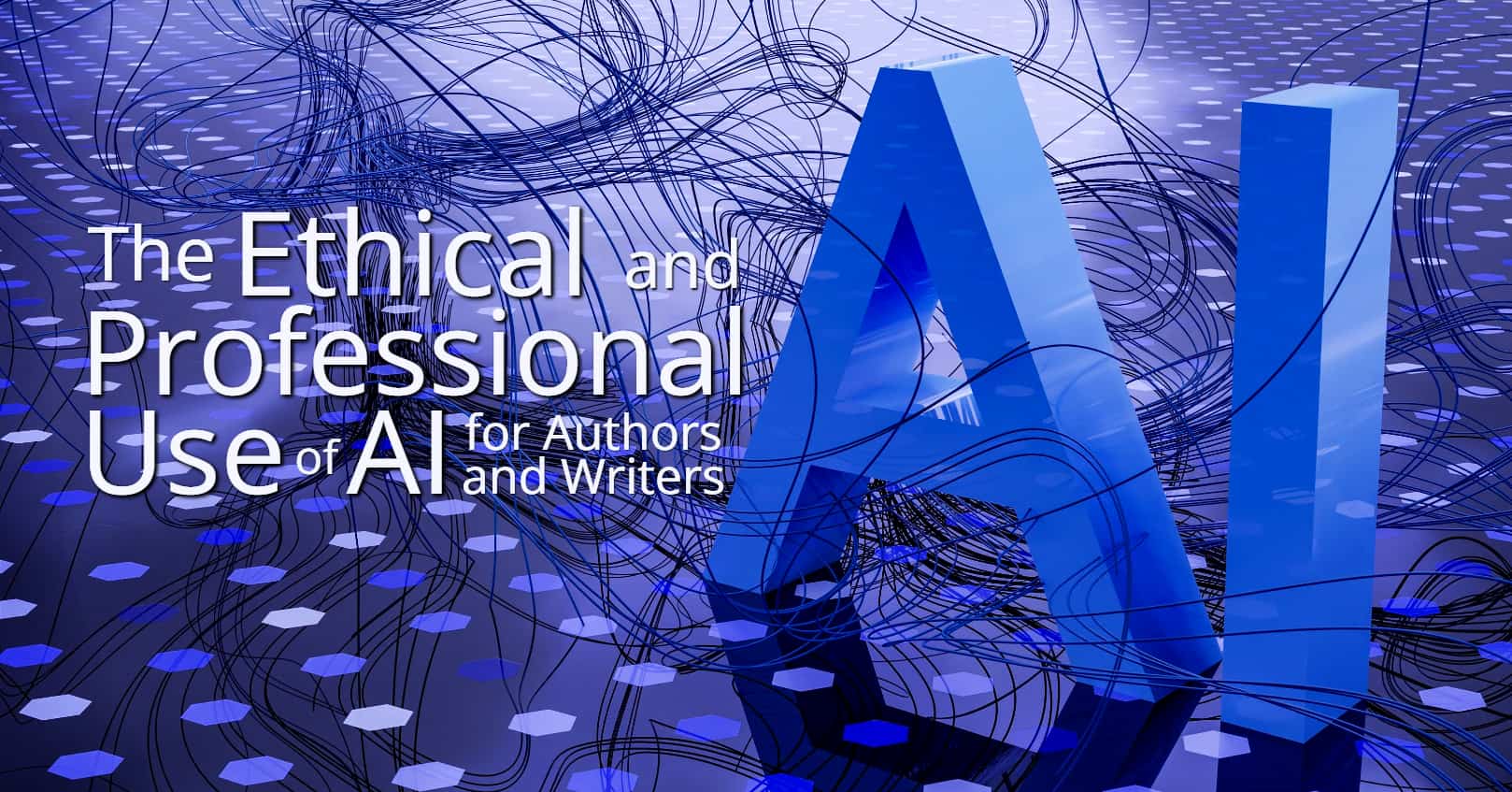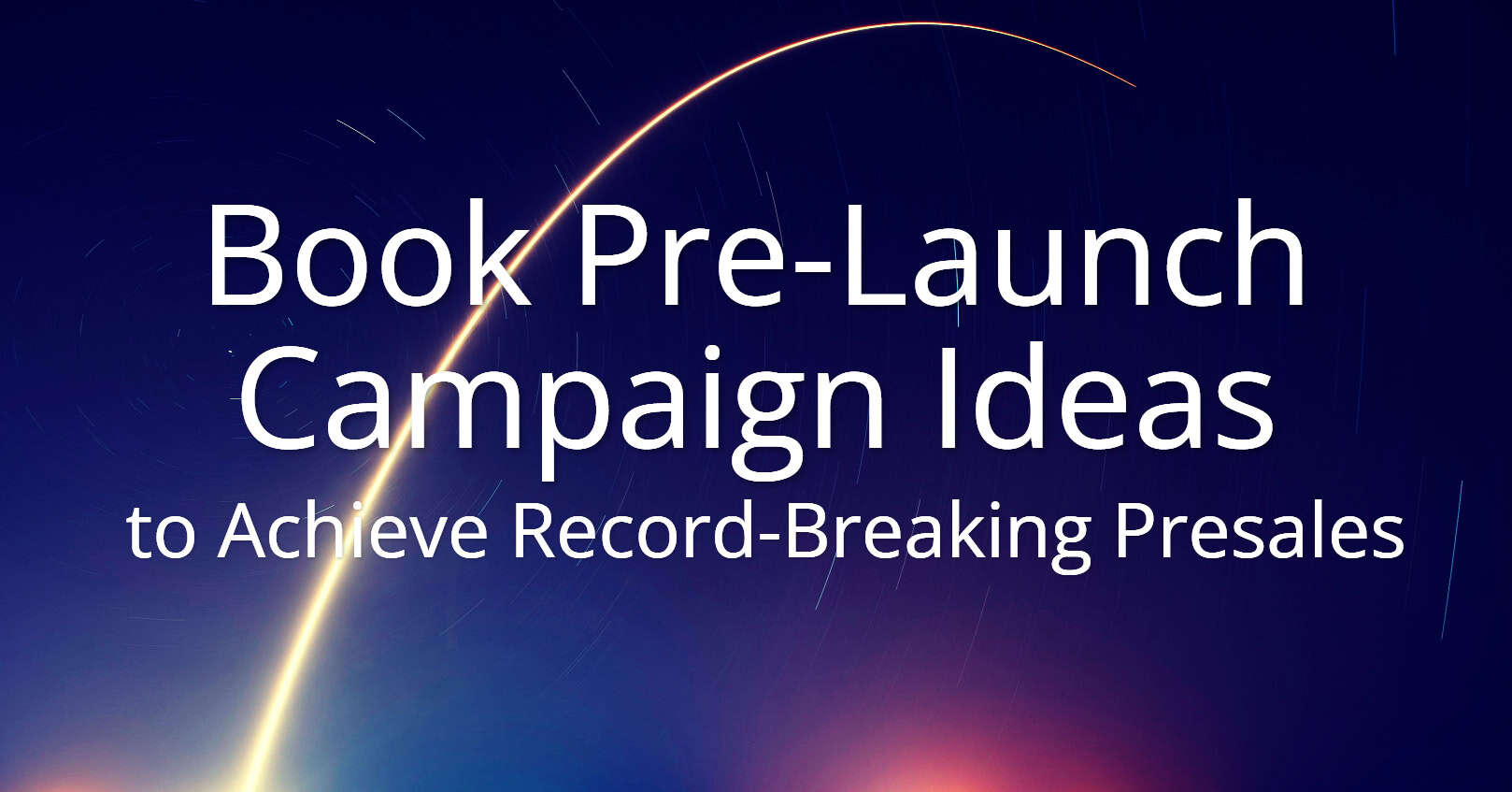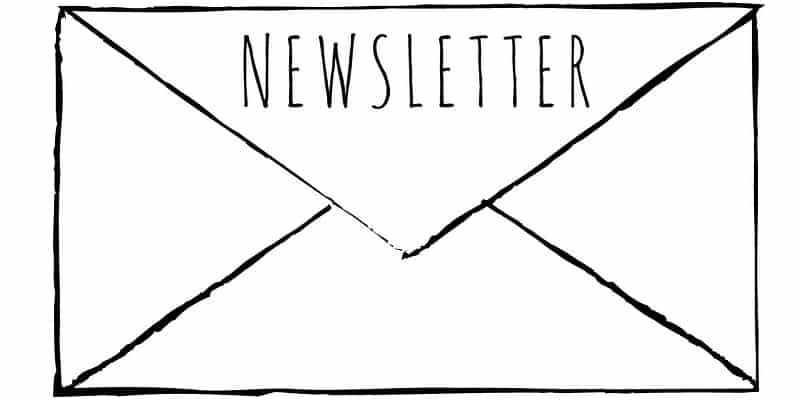
Oh, AI. You probably either love it or hate it.
AI has been the source of much discussion lately in the reader, writing, and art communities as it allows for innovations that were hardly believed possible before. It’s also led to much contention and many witch hunts.
Some preach that “AI is theft,” and yet that stance hasn’t stopped a multitude of AI-generated fan art from popping up in book communities, author groups, and social media all over the world. AI art has appeared as cover art for books published both by big publishers and independent authors. Several artists have even been “caught” using AI to make their jobs easier.
Reader-led witchhunts have taken it into their hands to address and attack authors they believe have used AI in their marketing, writing, or designing efforts, with or without actual proof.
For example, here are some AI topics that I’ve seen through my participation in readers groups:
- Recently, AI-generated books were destroying the rankings on Amazon and making legitimate books harder to find.
- The book Gothikana was recently under attack for its cover which, allegedly, was AI-generated. This TikToker further explains their stance here.
- TOR was also previously in question when Christopher Paolini’s book, Fractal Noise, was alleged to also have an AI-generated cover. While it’s believed Paloni had no idea the cover was AI-generated, he sure got to enjoy all the negative feedback that resulted.
- How about recently when one author tried to call out another author for AI artwork (The comment in question was: “If a cover is AI, the words are AI. I don’t make the rules 🤷♀️ AI 👏 IS 👏 THEFT 👏”), then ran to Reddit seeking help when the author she accused decided to take legal action and show proof that her work was not in fact AI-generated.
- Or when a special edition book box was believed to have AI for its endpapers and decided to remove them. Another book subscription box had books returned that were found to have AI artwork so that they could have new versions designed and sent out, at what I’m sure was a great cost to them.
It seems that no one is safe from AI speculation, whether there’s proof or not. Without legal guidelines, there’s little protection for creators as well as few guidelines on what kind of AI use should be seen as acceptable or not. The individual is left to decide for themselves, and the opinions on AI generally seem to be very polarized.
Is AI Really As Black and White As People Make It Out to Be?
Should the hard, “absolutely none” and “AI is theft” stance be the standard going forward? Is all AI-generated material fair use since “you can’t beat it, so join it”? Or perhaps there’s some sort of middle ground that could be found acceptable?
When books have been found to have covers that just have some AI-generated elements that were further manipulated by artists to create the final concept, they often go on to be published and purchased despite the mobs saying that this is not an acceptable use. This doesn’t make the use right or wrong, but it suggests that it’s not as clear-cut as some people make it out to be when someone is willing to buy the same book another person thinks should be burned for its AI-related crimes.
I believe the answer lies somewhere in the middle ground. There is a lot of evidence that this type of witch-hunting behavior hurts everyone involved. Take for example these comments from the Reddit thread above:
“Yes. And [AI witch hunts] harm artists, too.
“I’ve been an established cover artist for close to ten years. I have never struggled to find work. When AI first came out, things were scary for a while, but life went on as usual. It helped that there were plenty of discussions about how artists are valuable.
But over the past couple of months, I have lost multiple long-term clients because covers with 3D renders are so likely to be assumed to be AI-generated that they’re a risky business decision at this point. I offer stock photo covers as well, but they’re not my bread and butter by any means.
“There are several other designers in the discussion groups who are having similar existential crises. No one’s sure what to do. It doesn’t help that the discussions about supporting us, discussions which improved morale significantly when AI first came on the scene, have become discussions about suspecting us.
“Ironically, I think I’ve lost more income to the people who are trying to “help” than AI itself.”
And:
“I have seen multiple instances on social media of absolute witch hunting where people come after authors for ads, for covers, trying to take their books down and inciting a mob to come after their books all because they feel they know better and forgetting that there is a very real person being harmed behind the screen. In some cases, the author being harmed played no role, they were duped by their cover artist, or they were trade published and had zero control over what cover art was chosen by their publisher and self-published authors on an AI crusade tore them down in a witch hunt and tried to destroy their debut.
“. . . My cover designer made the comment to me the other day that so many stock photos are being put up now that are AI-generated and are NOT being labeled as AI. You could believe that you made something legit with photo stock or that your cover artist did and it could be AI due to other bad actors.
“People who feel strongly about supporting human creatives need to show their support for artists by paying artists to produce their covers, by paying artists to produce original character art, by paying artists to narrate their books, by paying editors to edit their books. Show your support with your dollars for what you DO support, rather than going around social media tearing other people down for what you PERCEIVE they MIGHT be doing when really, you have no idea.”
I agree that the witch-hunting has gotten out of hand. Of course, many believe that I am the one who’s out of hand. But it no longer seems like it’s a discussion about educating people on AI but finding glee and moral superiority in attacking them. I’ve never found that kind of behavior to be helpful in any situation. Fear should not be the decision behind hiring an artist or not. What happened to innocent until proven guilty?
Everyone is entitled to their own opinion and views on AI. I do think there are several useful and practical AI applications, which I’ll go into further along this AI series, where AI tools and applications can be incredibly useful in ways that don’t amount to theft or copyright infringement.
Of course, I do not think anyone should attempt to generate a poor attempt at a book and try to publish it as their creative work. And I do find AI art examples to often be incredibly far over the line of copyright infringement. More on that below, too.
Let’s Take a Minute to Discuss AI Art in General.
Are you wondering why AI art in general seems to be the topic with the most heated discussions? Why does AI-written content not seem to have the same amount of attention? You could spend hours and hours perfecting your novel, but a cover you may or may not have any control over could get you completely canceled.
I believe it boils down to several things:
- Some AI generators allow you to input a starting image, which people often have no rights to, and then spit out very similar images with minor tweaks.
- Some AI generators allow you to use specific artists’ names when generating images, allowing you to get something very similar to that artist’s style with no credit or compensation to the artist.
- AI bots scrape the web for any art that they can find, without any permission from the artists themselves. Those artists had no choice in whether their art was used to train these AI bots and were also given no compensation for their art being stolen by these AI bots. LAION 5B is a dataset used by several AI art generators and they admit they have a web scraper that has created datasets “crawled from the publicly available internet.”
I can imagine authors and writers too wouldn’t like it if they found out their works were being stolen so that fans could generate similar books in their style. Wait, books are already being stolen to train AI bots. Many of which were pirated copies that the AI companies got access to in the first place. In my opinion, that’s a lot of lines crossed by giant corporations who just don’t want to pay you to use your work. You can search the database to see if your books were used by following the steps in the above link.
While I know AI bots are a long way from being able to generate any sort of quality, novel-like writing, could this be something that happens in the future if authors and writers lose the fight to keep these giants from continuing to steal your books to write content? Hasn’t the popularity of fan fiction proven that many readers would rather read variations of stories with familiar and comforting characters that they love rather than take a risk on new authors? Is a future where a reader could type in “Write me a romance novel in the style of my favorite authors set in a place of my choosing and make the characters do such and such . . .” really such a far stretch?
Do you want your books used to train AI bots? Would you feel differently if you were asked and compensated for their use?
I believe this is another reason why AI artwork is such a passionate topic: the lawsuits and decisions regarding its use may very well become the standard by which all other creative fields are held.
So, Why Isn’t the Battle for AI Writing As Intense?
I’ve touched on a couple of points above, but I also think it’s a lot harder to make AI writing something that can be immediately used as an award-winning book with little effort.
AI art generators can pop out incredible artwork in seconds with very little effort from their users. I’ve never seen AI-written content that was incredible, breathtaking, insightful, or ready to go without any (often A LOT of) additional editing. AI writing is often very formulaic, stilted, and apparent, in my opinion. Of course, it hasn’t stopped people from trying to publish it as an original novel, but they’re not very good, and easily called out by both people and AI detectors; thus, it’s probably not going to make someone who is trying to pass off AI-written content very much money or gain them lots of attention.
See, the problem isn’t that AI artwork looks bad, it’s quite the opposite. It looks so good and is so quickly and easily generated that people are afraid it will completely replace actual artists because they can’t keep up.
AI writing kinda sucks right now. So it’s not really at the same threat level.
But What about Using AI to Generate Audiobooks?
Several authors have taken advantage of AI to create audiobook versions of their novels. A certain giant book retailer even launched a beta program to help authors create AI-voiced audiobooks. These AI voices have been modeled on real-life voices and audiobooks, many used with permission. This means we are also facing a dilemma of deciding how much immiation is ethical.
From a brief look into this, I’ve seen comments ranging from excitement about easily being able to add an additional revenue stream to author earnings, to people hating the sound of AI narrators and claiming that not only do text-to-audio readers already fulfill this function, but that they do it better for readers who are interested or need a service like this. Listening to a few chapters on several text-to-audio apps designed for the seeing impaired, I can’t agree with this last opinion. The voices of text-to-audio apps are mechanical and monotone, so any improvement that AI could bring would be arguably helpful for that purpose.
As AI audio narration improves, we may face a complete changeover from human to AI in that field. Is this something society should accept as we did with the automation of factories? Once again, it’s an area where you need to decide for yourself how you feel about AI use for this purpose.
So How Can Authors and Writers Use AI Ethically?
In my opinion, if you want to use AI ethically, there are a few things you should be doing.
First, you should be transparent.
If you’re an artist who is using AI-generated components in your artwork, then surely it’s better to be transparent about your use than to look guilty while attempting to hide it?
If you’re using AI as an author to help with research or editing title ideas or marketing strategies, is it really so bad to have a little note somewhere saying you use AI to streamline some processes so that you can have more time to focus on writing?
In my opinion, if you’re not willing to be transparent about what you’re doing, then it’s probably because you have some negative feelings about what you’re doing, and that might tell you a little bit about how you truly feel about AI.
Second, Respect Copyright and Intellectual Property.
If you’re reading this, you’re probably an author or writer, and therefore you’re probably very familiar with copywriting laws. Perhaps you’ve already had instances where your works were stolen and uploaded on book torrent sites or other copyright infringements. I think that it’s our responsibility to do everything in our power to ensure the AI we choose to use is not in any sort of grey area regarding copywriting laws.
For example, let’s not plug in a specific artist’s artwork that you really, really like into a generator and have it spit something similar out. I think we can all agree that’s pretty sketchy behavior. If you like someone’s art that much, you should be paying them.
If an AI generator spits out something that you think appears to be heavily inspired by a work or content you recognize, it’s probably best not to use that content. Some people have had AI generate content that still had the original artist’s initials on it. Red flag.
Basically, if you wouldn’t want someone to do something similar with your work, you probably shouldn’t be doing it with theirs.
Third, Take Responsibility.
AI isn’t perfect. It generates false information all the time. Notably, have you heard of the lawyers who tried to use AI to help with their court case without realizing that the AI generator had completely fabricated fake legal cases for their use? And they didn’t realize it until it was brought up in court? Embarrassing.
If you put inaccurate information out there, regardless of whether you wrote it or generated it, you’re the one who is responsible.
Remember that AI also has a learning cut-off of 2021, so doublecheck any information you generate with AI before you release it into the wild.
Doing your due diligence is key.
And if you’re worried about using any AI content in your work, you best consult your lawyers and see how they feel about your particular application and use.
These are some of my thoughts on the rise of AI, especially when it comes to the reading and writing communities. What are your thoughts on it? Do you think there are any ways that authors and writers can use AI ethically and professionally?
Let us know in the comments below!
Happy writing.
















One minor expansion on what you said about copying an artist’s or author’s style. Every person’s individual creative works are copyrighted by default, but their style does not qualify for copyright. Everyone is legally free to create whatever they want using another artist’s style. (It might be considered rude to do so, but it’s perfectly legal.) Just don’t copy from their works without a solid understanding of Fair Use laws.
I am an author. I like what the Writers Guild in Hollywood specified: it is acceptable to use AI for anything I would use an assistant for. For me, that means brainstorming, generating plot possibilities, creating character backgrounds, and doing other research. Chat GPT was immensely helpful in specifics on an amputee getting a new prosthesis, especially when I couldn’t get what I needed from web searches and no one would return my emails/phone calls for an interview. It wasn’t the only thing I used–members of a Facebook group were most helpful too–but I couldn’t have written that particular book without AI.
While I will use it as an assistant, I believe it has no place in writing the actual book. That is me: my thoughts and feelings, my worldview and life experience, my sense of humor, and my writer’s voice. AI will never take the place of that.
Jen, good for you. However neither you nor the Writers Guild in Hollywood can stop it. And legally, you have no case. Even stable diffusions checkpoint file, at around 4GB, couldn’t contain even a single pixel from every image used to train it. There’s no theft here. Just a system trained on content visible to anyone – just like a spam filter. Sorry you don’t like it. You can choose to evolve, or you can go extinct. As a traditional author (wrote 2 novels, working on the third – no AI) and a long-time art director and graphics designer, I am choosing to evolve. Same thing happened when “Computer” used to be a job and then became the machine we know today. So people whose jobs were computers, became programmers if they wanted to evolve with the times. I suggest you all think about what it would take to stop AI: nothing. The cat is out of the bag. Join us in the benefits, but art and writing as you know them to have been? Completely different. And never will be the same again.